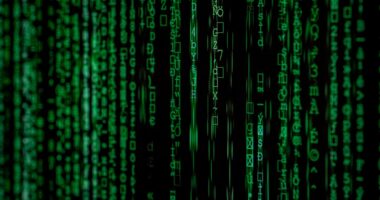Non-fungible tokens (NFTs) are unique digital assets that represent ownership of specific items or content, such as artwork, music, videos, and virtual real estate. Unlike fungible cryptocurrencies, NFTs are not interchangeable and have distinct values. The concept of NFTs emerged several years ago but gained significant attention in 2017 with the launch of CryptoKitties, a blockchain-based game involving virtual cats.
Since then, the NFT market has experienced rapid growth, with creators from various fields adopting this technology to monetize their digital works. The market has evolved to include a wide range of tokenized assets beyond digital art and collectibles, such as music albums, concert tickets, virtual real estate, and even social media posts. The expansion of the NFT market has created new opportunities for creators and investors to tokenize and trade diverse digital assets.
Blockchain technology provides a secure and transparent method for verifying ownership and provenance of these assets, further driving market growth. As NFTs continue to gain popularity, it is likely that innovation and diversification in tokenized assets will persist, along with the emergence of new use cases across various industries.
NFT Jobs: Opportunities and Challenges in the Industry
Emerging Career Paths in the NFT Industry
The rise of NFTs has created a new and exciting job market for individuals looking to work in the blockchain and digital asset space. From developers and engineers to marketers and legal experts, there is a wide range of opportunities available in the NFT industry. One of the most in-demand roles in the NFT space is that of a smart contract developer, as NFTs are built on blockchain technology and require specialized coding skills to create and manage.
Key Roles in the NFT Industry
Additionally, there is a growing need for digital artists and designers who can create unique and compelling NFTs that will attract buyers and collectors. On the marketing side, there is a demand for individuals who can promote and sell NFTs through social media, online marketplaces, and other channels. Legal experts are also playing a crucial role in the NFT industry, as they help navigate the complex legal and regulatory landscape surrounding digital assets.
Challenges in the NFT Industry
While there are many opportunities in the NFT industry, there are also challenges that come with working in this fast-paced and rapidly evolving market. One of the main challenges is the lack of established standards and best practices for creating, buying, and selling NFTs. This can make it difficult for newcomers to navigate the industry and understand how to best position themselves for success. Additionally, the volatile nature of the cryptocurrency market can pose risks for those working with NFTs, as the value of digital assets can fluctuate dramatically. Furthermore, the legal and regulatory environment surrounding NFTs is still evolving, which can create uncertainty for individuals working in this space.
NFT Artists: How They are Thriving in the Current Market

NFTs have opened up new opportunities for artists to monetize their work and connect with a global audience in ways that were previously not possible. By tokenizing their art as NFTs, artists can sell their work directly to collectors without the need for intermediaries such as galleries or auction houses. This direct-to-consumer model allows artists to retain more control over their work and earn higher profits from their sales.
Additionally, NFTs enable artists to receive royalties every time their work is resold on the secondary market, providing them with a continuous stream of income from their creations. This has been particularly beneficial for emerging artists who may not have had access to traditional art markets or established galleries. In addition to financial benefits, NFTs have also allowed artists to experiment with new forms of digital art and reach a wider audience online.
From digital paintings and illustrations to 3D animations and virtual reality experiences, artists are pushing the boundaries of what is possible with NFTs and creating innovative and immersive art forms. The ability to tokenize music albums, videos, and other multimedia content has also opened up new avenues for musicians, filmmakers, and content creators to showcase their work as NFTs. As the NFT market continues to evolve, we can expect to see even more opportunities for artists to thrive and innovate in this dynamic and rapidly growing industry.
NFT News: Latest Developments and Trends in the NFT Space
| Date | Event | Impact |
|---|---|---|
| March 2021 | First NFT artwork sold for 69 million | Signaled mainstream interest in NFTs |
| May 2021 | NFT market reached 2 billion in sales | Increased attention from artists and collectors |
| August 2021 | NFT gaming gaining popularity | Expanding NFT use cases beyond art |
| October 2021 | Environmental concerns over NFTs | Debate on NFTs’ carbon footprint |
The NFT space is constantly evolving, with new developments and trends emerging on a regular basis. One of the most notable trends in the NFT market is the growing interest from mainstream brands and celebrities who are entering the space to tokenize their content and engage with their fan base. From sports teams releasing NFT collectibles to musicians dropping exclusive albums as NFTs, we are seeing a wide range of industries embracing this new technology to connect with their audience in innovative ways.
Additionally, there has been a surge in interest from traditional art institutions and galleries that are exploring how NFTs can be integrated into their existing business models. Another significant development in the NFT space is the rise of environmentally friendly platforms that are addressing concerns about the carbon footprint of blockchain technology. As the energy consumption of blockchain networks has come under scrutiny, there is a growing demand for eco-friendly alternatives that minimize the environmental impact of NFT transactions.
Several platforms have emerged that are focused on reducing energy consumption and promoting sustainability in the NFT space, which is likely to become an important consideration for both creators and collectors in the future. Overall, the NFT space is evolving at a rapid pace, with new developments and trends shaping the industry and driving its continued growth.
NFT Marketplaces: Where to Buy and Sell NFTs
There are numerous online marketplaces where individuals can buy and sell NFTs, each offering unique features and opportunities for creators and collectors. One of the most popular platforms for buying and selling NFTs is OpenSea, which is an open marketplace that supports a wide range of digital assets, including art, domain names, virtual worlds, and more. OpenSea allows users to create, buy, sell, and trade NFTs without any fees or restrictions, making it an attractive option for both creators and collectors.
Another prominent marketplace is Rarible, which is known for its decentralized platform that enables creators to mint their own tokens and sell them directly to buyers without intermediaries. In addition to these open marketplaces, there are also specialized platforms that cater to specific types of digital assets or niche communities. For example, Foundation is a curated platform that focuses on supporting digital artists by providing them with a space to showcase and sell their work as NFTs.
SuperRare is another platform that is dedicated to supporting digital artists by offering a marketplace for rare and exclusive digital art pieces. These specialized marketplaces provide creators with opportunities to connect with collectors who are specifically interested in their niche or style of work. As the demand for NFTs continues to grow, we can expect to see even more marketplaces emerge that cater to specific types of digital assets or communities.
NFT Regulations: The Impact of Legal and Regulatory Changes

Challenges in Regulating NFTs
One of the main challenges for regulators is determining how existing laws apply to NFTs, as they do not fit neatly into traditional categories such as securities or intellectual property. Additionally, there are concerns about consumer protection, money laundering, and tax implications related to buying and selling NFTs.
Emerging Regulatory Frameworks
As a result, there is a growing need for clear guidelines and regulations that provide legal certainty for individuals working with NFTs. In response to these challenges, some jurisdictions have started to implement specific regulations for NFTs, while others are still in the process of developing frameworks to address this emerging asset class. For example, the United States Securities and Exchange Commission (SEC) has indicated that certain types of NFTs may be considered securities under existing laws, which could have implications for how they are bought, sold, and traded.
Staying Informed in a Changing Landscape
In Europe, there are ongoing discussions about how to regulate NFTs under existing consumer protection and copyright laws. As the legal and regulatory landscape continues to take shape, it will be important for individuals working with NFTs to stay informed about any changes that may impact their activities in this space.
NFT Future: What to Expect in the Coming Years
Looking ahead, the future of NFTs appears promising as this innovative technology continues to gain traction across various industries. We can expect to see continued growth in the diversity of digital assets being tokenized as creators explore new ways to monetize their work through NFTs. Additionally, advancements in blockchain technology are likely to improve the scalability and sustainability of NFT transactions, making them more accessible to a wider audience.
As mainstream brands and celebrities continue to embrace NFTs as a means of engaging with their fan base, we may see even more innovative use cases emerge that leverage this technology to create unique experiences for consumers. Furthermore, as the legal and regulatory landscape surrounding NFTs becomes clearer, we can expect to see increased institutional adoption of this technology as traditional financial institutions and art markets recognize its potential value. This could lead to greater liquidity in the NFT market as more investors participate in buying and selling digital assets.
Overall, the future of NFTs looks bright as this technology continues to disrupt traditional markets and provide new opportunities for creators and investors alike. As we move forward into this exciting future, it will be important for individuals working with NFTs to stay informed about developments in this rapidly evolving industry.
If you’re still wondering if NFTs are still a thing, you might want to check out this article on nft-jobs.com. The article discusses the current state of NFTs and their impact on the job market, providing valuable insights into the ongoing relevance of NFTs in the digital economy. It’s a great resource for anyone looking to stay updated on the latest developments in the NFT space.
FAQs
What are NFTs?
NFTs, or non-fungible tokens, are digital assets that represent ownership or proof of authenticity of a unique item or piece of content, such as art, music, videos, or collectibles, using blockchain technology.
Are NFTs still popular?
NFTs experienced a surge in popularity in early 2021, but their popularity has since fluctuated. While they are still being traded and created, the hype around NFTs has somewhat subsided.
How do NFTs work?
NFTs are created, bought, and sold on blockchain platforms using cryptocurrency. Each NFT has a unique digital signature that verifies its ownership and authenticity, making it different from other tokens or cryptocurrencies.
What are some criticisms of NFTs?
Critics of NFTs point to concerns about their environmental impact due to the energy-intensive process of minting and trading NFTs. Additionally, there are concerns about the speculative nature of NFT markets and the potential for copyright infringement.
Can NFTs be used for more than just art and collectibles?
Yes, NFTs have the potential to be used for a wide range of digital assets, including tickets, virtual real estate, in-game items, and even real-world assets like property deeds and certificates of authenticity.





